New outback alcohol restrictions as Anthony Albanese arrives in Alice Springs
Snap alcohol restrictions have been announced for Alice Springs after Anthony Albanese landed in Central Australia in an urgent trip to address soaring youth crime and alcohol-fuelled violence.
National
Don't miss out on the headlines from National. Followed categories will be added to My News.
Stronger temporary alcohol restrictions will be introduced in Alice Springs in a desperate effort to curb a shocking spike in violent crime and anti-social behaviour.
Anthony Albanese made an emergency visit to the Central Australian town on Tuesday following community calls for help and mounting political pressure for the Commonwealth to do more to address the crime wave.
Home invasions, robberies, domestic violence, property damage and assault rates have soared in recent months, with many Alice Springs residents blaming the youth crime wave on the expiry of the so-called “grog ban” in July last year.
In response Northern Territory Chief Minister Natasha Fyles has announced the current limit on takeaway alcohol on Sundays will be extended to bans on Monday and Tuesday, liquor store hours will be reduced to between 3pm and 7pm only, and only one transaction will be allowed per person for the next three months.
Meanwhile the Prime Minister announced the appointment of a Central Australian regional controller, Dorrelle Anderson, who he tasked to complete an urgent review on whether community-wide opt-out bans should be reintroduced, instead of the current opt-in system.
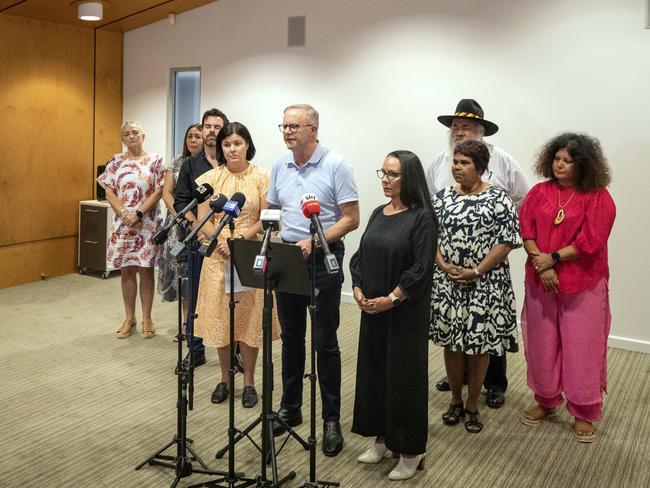
The report is due to be handed to the federal government on February 1.
“(Alcohol) is quite clearly a factor, it is not the only factor, but it is a factor,” he said.
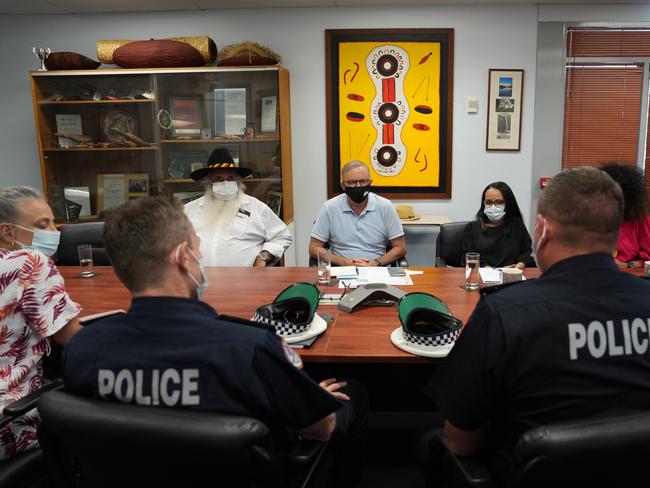
Mr Albanese said there was $14.2 million available for “high-visibility police operations”, including security in public places, $2 million for CCTV safety lighting and $5.6 million for emergency accommodation.
Indigenous Australians Minister Linda Burney said the government would be looking at a range of medium and long term solutions.
“The issue of youths on the street, and the issue of alcohol-fuelled violence are real,” she said.
There has been a 43 per cent increase in assaults in Alice Springs in the year to November, including a 53 per cent jump in domestic violence-related assaults and a 54 per cent rise in alcohol-relate assaults.
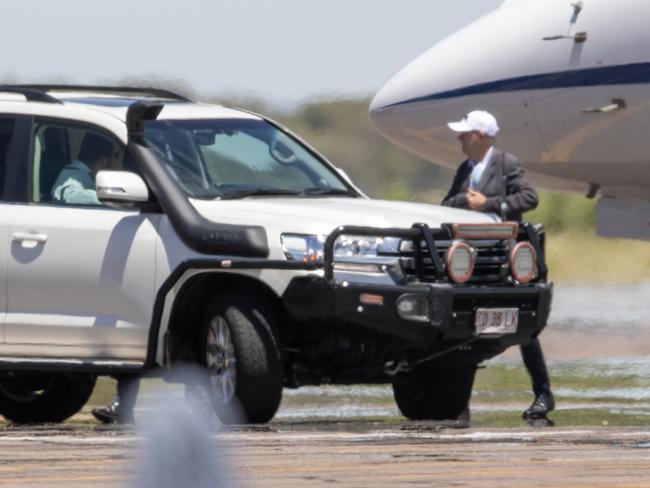
Commercial break-ins rose by 55 per cent and reports of property damage soared by 59 per cent over the same period, according to NT Police data.
Alice Springs businessman Darren Clark has been the victim of crime 41 times, describing the situation as “totally out of control”.
“I’ve had two vehicles stolen from my home, I’ve had two home invasions, one of my cafes broken into 20-odd times, I’ve had my shop ramraided,’ he said.
Central Australian Aboriginal Congress chief executive Donna Ah Chee, who met with Mr Albanese, said the group had predicted violence and crime in Alice Springs would increase if the alcohol restrictions lapsed.
“We need to prevent this situation from continuing … if we remove the root course, which is the access to alcohol, we wouldn’t need the ADF,” she told ABC.
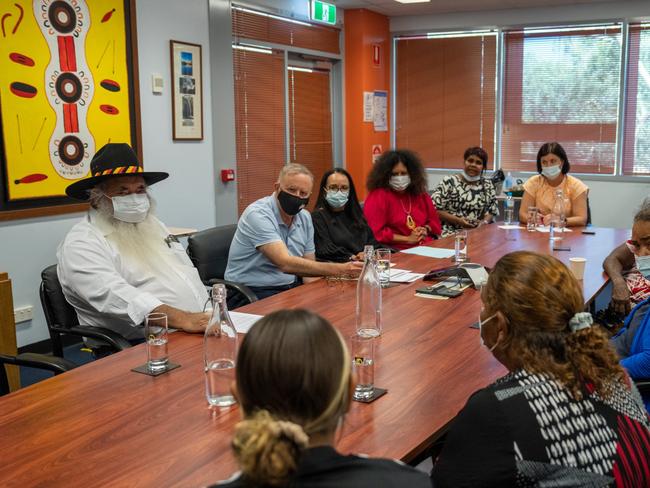
Ms Ah Chee said the situation in Alice Springs currently was “abnormal” and revealed she had also experienced a break in.
“I have never felt so unsafe and so scared,” she said.
Alice Springs Mayor Matt Paterson has pleaded with the federal government for more resources to address the issues in his town, backed by Opposition leader Peter Dutton.
Mr Dutton said the crime rates were “completely unacceptable”.
But NT police commissioner Jamie Chalker has rejected calls for a military intervention.
“We’re not going to arrest our way out of that,” he said.
Mr Chalker also said the issues of anti-social behaviour, crime and alcohol-fuelled violence were not unique to the NT, noting Townsville and the Kimberley were also struggling.
“There is something acutely underlying here.”
PM ARRIVES IN ALICE SPRINGS AMID CRIME SPIKE CRISIS
Amid soaring crime rates and a wave of anti-social behaviour, Anthony Albanese has arrived in Alice Springs to meet with community leaders to discuss the ongoing crisis.
The Prime Minister travelled to the central Northern Territory town on Tuesday afternoon, joined by Indigenous Australians Minister Linda Burney, Labor Lingiari MP Marion Scrymgour and Senators Pat Dodson and Malarndirri McCarthy.
Opposition leader Peter Dutton has been urging Mr Albanese to visit Alice Springs as the central town grapples with a surge in crime, with the federal Coalition calling for the reinstatement of alcohol bans.
There was a 43 per cent increase in assaults in the year to November, according to new crime statistics released by Northern Territory Police last week.
This included a 53 per cent jump in domestic violence-related assaults and a 54 per cent rise in alcohol-relate assaults.
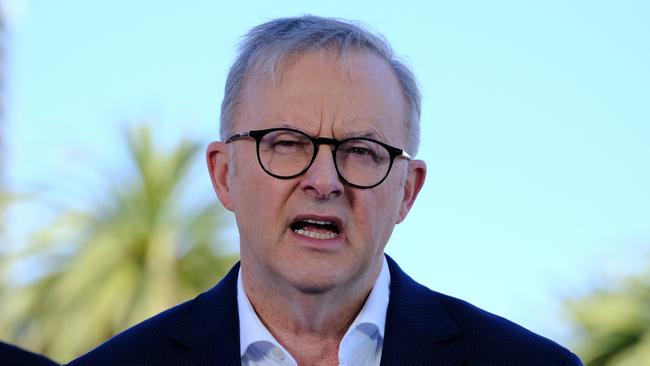
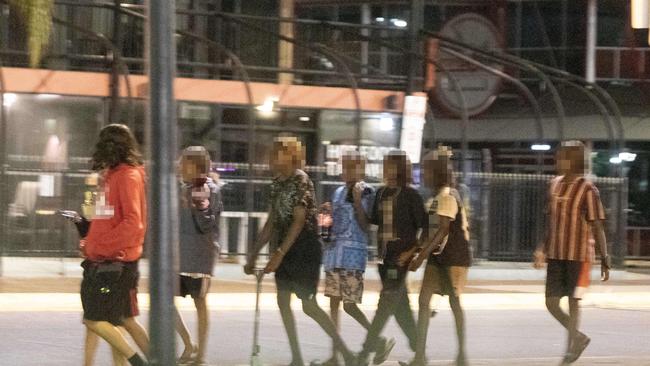
Commercial break ins rose by 55 per cent and reports of property damage soared by 59 per cent over the same time.
Young people walking the streets of Alice Springs late at night has also caused concern, as locals fear law and order is beyond the control of local authorities.
Mr Dutton said the crime rates were “completely unacceptable”.
“The prime minister should have been there by now, but he should go tomorrow and I would be happy to travel with him,” he said on Monday.
“If the level of violence, of crime, of sexual assault, of domestic and family violence was occurring in Brisbane or in Melbourne or in Hobart or in Sydney, there would be outrage.”
Alice Springs mayor Matt Paterson last week said the town needed immediate help “whether that is the AFP (Australian Federal Police), whether that is the army, or whether that is just resources from another jurisdiction”.
But NT police commissioner Jamie Chalker on Tuesday said he “completely” rejected calls for a military intervention in Alice Springs.
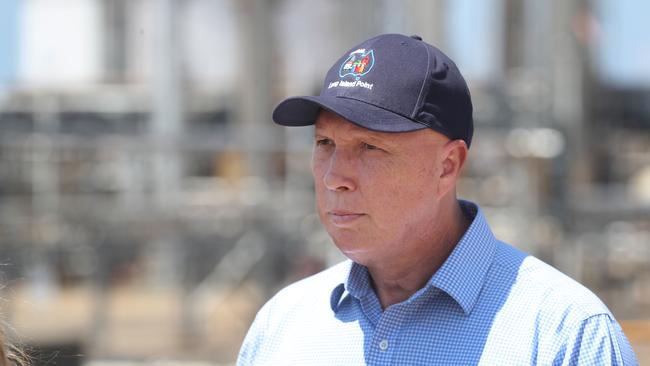
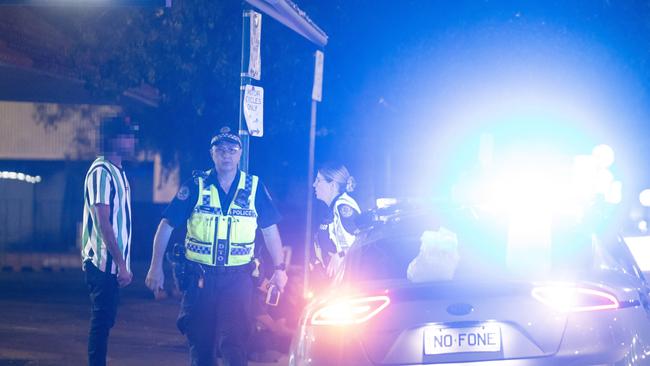
“We’re not going to arrest our way out of that,” he told ABC Darwin.
“I’m not sure that the imagery of Australian soldiers, who are here to serve their country, dealing with First Nations people in a way that sees them having to effect arrests of them and place them in police vehicles and the like is the imagery that we really want for Australia.”
Mr Chalker said key Commonwealth agency leaders must be “at the table” with the chief executives of Northern Territory government agencies to “truly review” the data and service models in place to “turn the tide”.
“(We must) take Aboriginal people with us, not continue to see policies that have been imposed upon them right back to the 2007 Northern Territory leadership response,” he said.
Mr Chalker also rejected suggestions the problem was unique to the Territory.
“Townsville is suffering significant social order issues as well,” he said.
“The Kimberley are going through these challenges as well.
“So I don’t think it’s as simple as being a Northern Territory point of failing. There is something acutely underlying here.”
More Coverage
Originally published as New outback alcohol restrictions as Anthony Albanese arrives in Alice Springs





